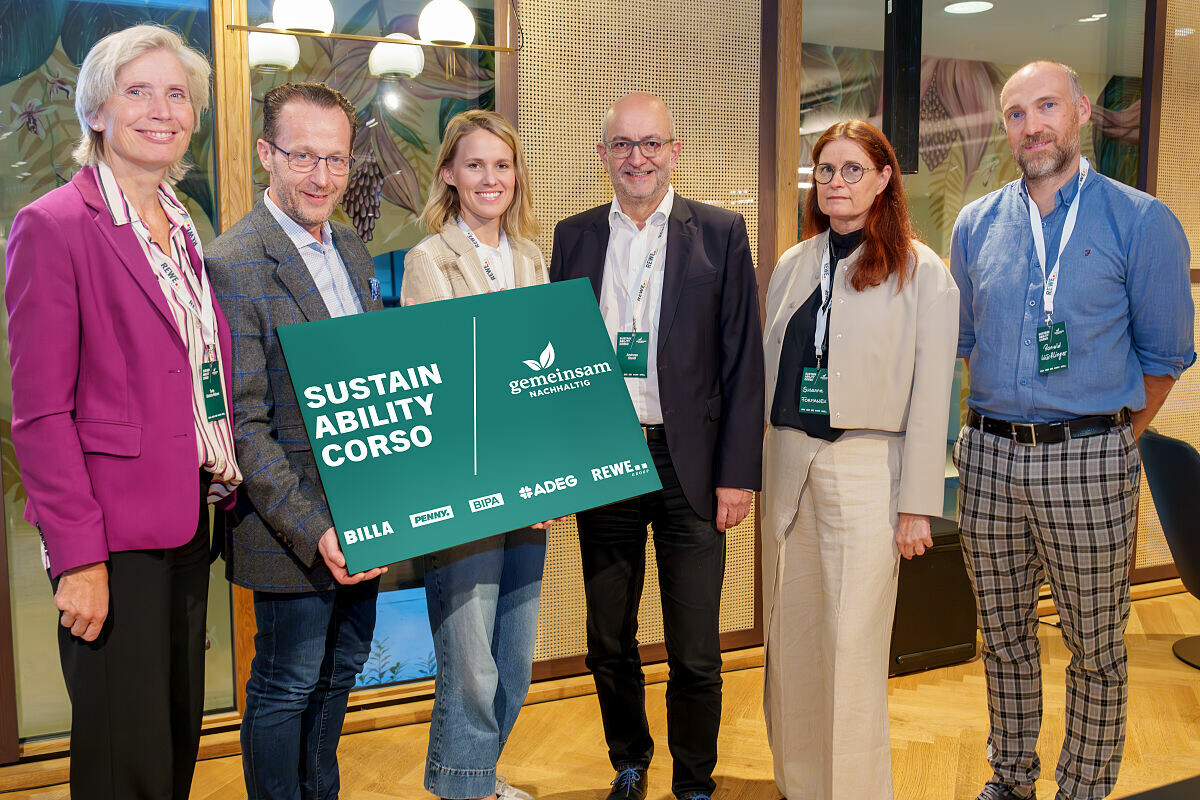REWE supports sustainable energy transition
Since 2008, REWE Group has relied on green electricity at all locations and currently operates 291 photovoltaic systems with a total output of 25,000 kWp, which generate around 26 GWh of electricity annually - enough for around 6,500 households. Photovoltaic systems are standard in new buildings and conversions, and the aim is to increase the proportion of in-house production tenfold by 2030 compared to 2020. In addition, more and more solar carports are being used to generate electricity despite stricter construction and legal requirements. The efficient use of the electricity generated is currently supported by 30 energy storage units with a capacity of 1,500 kWh. These measures are a contribution to the sustainable design of urban spaces.
"For us, sustainability means setting ambitious goals and pursuing them consistently. With our extensive measures, such as the expansion of photovoltaic systems and the creation of environmentally friendly infrastructure, we are taking the next step towards a greener future," says Marcel Haraszti, CEO of REWE International AG.
“With our ecological construction methods and innovative projects, we make a visible contribution to sustainable business practices every day. The SUSTAINABILITY CORSO shows how important it is to come together to advocate for a greener future and to implement concrete solutions,” emphasized Robert Nagele, who is responsible for sustainability agendas on the BILLA board.
Living Responsibility at All Levels
An example of the comprehensive activities in the area of sustainability is the non-profit foundation “Blühendes Österreich,” founded in 2015 by REWE International and BILLA, which is committed to biodiversity and climate protection. Blühendes Österreich supports around 300 farmers, conservation organizations, municipalities, NGOs, and civic initiatives that protect our habitats, animals, and plants through responsible farming and valuable conservation projects.
The sustainability commitment is also reflected in the product range. “Even in economically challenging times, we have continued to expand our organic range, remained true to our pioneering role in the plant-based segment, further developed partnerships with local farmers, intensified food rescue initiatives, and invested in sustainable products,” said Marcel Haraszti.
BIPA is increasingly focusing on sustainable products and offers items under the green label that carry the Greenpeace quality seal. The own brand “bi good” stands for eco-friendly and regional packaging as well as sustainable ingredients that are subject to strict certifications.
ADEG is launching a campaign to reduce waste with the resource-saving reusable bag “BÖNUS-Sackerl.” Customers who use a registered BÖNUS-Sackerl will receive 5 additional Ös as a reward for purchases over 10 euros. With this, ADEG aims to promote the use of reusable bags and contribute to environmental protection. Additionally, ADEG is making a strong statement against food waste with various initiatives from its retailers.
PENNY has supported the PENNY Family Aid Fund of the Austrian Red Cross since 2011 and calls on its customers to donate twice a year. Additionally, proceeds from shopping bags and loyalty promotions go into the donation pot. In 2023, around 188,000 euros were collected to benefit families in need in Austria.
Sustainable Greening as the Key to Climate Protection at REWE
The REWE Group is investing around 500 million euros in its locations this business year, the majority of which is directed toward the ecological transformation of the markets. The early inclusion of landscaping planning for sustainable design of facade, roof, and parking lot greening is a key topic in the planning and design of supermarkets. In this context, BILLA has developed an internal greening manual that serves as a guideline for questions related to greening. It contains nature-based solutions that not only improve the appearance of the markets but also contribute to climate adaptation, biodiversity, and water management. By integrating these measures in a timely manner during the planning phases, costs can ultimately be optimized, and the long-term viability of green areas secured.
Forward-looking Pilot Projects
Later this year, BILLA will open its “greenest” store in Austria in Vienna Donaustadt. Measures, from utilizing rainwater for green areas to promoting tree growth in parking lots, not only improve the microclimate but also enhance the quality of stay for customers and employees.
Building Greening as the Key to a Sustainable Future
Susanne Formanek, Managing Director of GRÜNSTATTGRAU GmbH, demonstrated in her presentation at the SUSTAINABILITY CORSO how building greening not only contributes to the aesthetic enhancement of buildings but also brings concrete ecological benefits. “Green buildings make a valuable contribution to climate adaptation in cities. They store water, improve air quality, provide habitats for plants and animals, and act as building optimization. Moreover, they help reduce particulate matter and noise emissions and promote biodiversity in urban areas,” Formanek explained in her presentation.
For more information on the extensive sustainability measures of the REWE Group and its forward-looking projects, please refer to the new Sustainability Report 2023 (REWE Group - Sustainability Report 2023).












